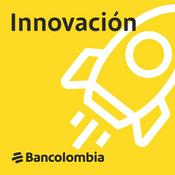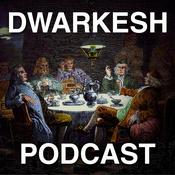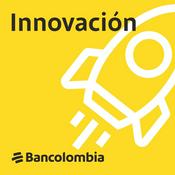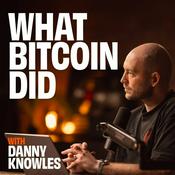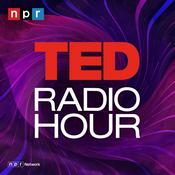49 episodios
- Such a delight to re-connect to my colleague from many moons ago – Peter Coleman – who, just for the record, is not my relative.
Our paths crossed beginning sometime around 1995, at the International Center for Cooperation and Conflict Resolution, the “ICCCR” at Teacher’s College, Columbia University, where we worked together on many cool initiatives until I left around 2003.
My partner Ellen Raider, with whom I had been delivering intercultural negotiation programs around the world, brought me into the Center after connecting with Mort Deutsch – who is often referred to as a grandfather of conflict resolution, and perhaps the grandfather of conflict resolution in the west.
At the Center, Ellen and I created the first certificate program in conflict resolution at Teacher’s College – which included collaborative negotiation, mediation and then a growing list of related and interesting skill sets like using large group processes to resolve conflict and create systemic culture change.
At the time of my arrival, Peter was a graduate student, Mort Deutsche’s protégé – and I watched him rise to where he is today as head of the center and now a well respected social psychologist and researcher in the field of conflict resolution and sustainable peace -- probably best known for his work on intractable conflict.
Prompted by the publication of his new book, The Way Out: How to Overcome Toxic Polarization, I asked Peter to join me on the podcast for a conversation -- and draw from his book, his work, his life (anything that he felt was most relevant) to address the role of gender, gender equality, gender transformation, and its connection to building a more peaceful, democratic and sustainable world.
He agreed and we had a great conversation which we bring to you now.
As those of you who have followed me on this podcast know I -- along with many --believe that getting gender “right”, the role of gender, moving beyond outdated patriarchal structures, is THE foundational challenge to building a much more peaceful, sustainable and pleasurable planet for humanity and other living creatures
By way of example, allow me to repeat the poignant and on target words of Shabana Basij-Rasikh, who is the co-founder and president of a School of Leadership for women in Afghanistan who said recently in the Washington Post:
"Educated girls grow to become educated women, and educated women will not allow their children to become terrorists. The secret to a peaceful and prosperous Afghanistan is no secret at all: It is educated girls."
That statement makes me want to cry. What a tragic but accurate comment after the countless lives lost, the total pain for so many Afghans now, and the trillions my country just wasted in our two decades of war in Afghanistan the costs of which were so intelligently tracked by The Costs of War project who we had on this podcast a while back.
Using military or policing force is not generally the best solution to conflict – genuinely meeting people’s needs is.
It’s not that complicated.
But moving beyond the money that drives the choice of using force is complicated, and we need to figure this out like, yesterday.
So, here are some of what I call my “favorite frames” from Peter’s and my conversation:
Reminiscing about our early years at the ICCCR – and a moment when we had a room filled with teachers, guidance counselors, principals from all the approximately 188 New York City schools – the largest school system in the country and perhaps the world, convened to learn critical negotiation and conflict resolution skills. It was awesome;
The seeds that were planted in Peter to do a life’s work in the field of peace and conflict – his reflections on himself as a 7-year-old, the influence of being raised by women, turbulent times in Chicago, the presence of Martin Luther King, the “macro-worry” that began to build in his young awareness of social justice issues and the related conflict about them;
A conference he convened to change the conversation from ‘negative’ peace – like addressing violence prevention and atrocity mitigation to ‘positive peace’ – like creating communities that will foster harmonious relations in which destructive conflict is far less likely to erupt. Similar to why I moved from doing more traditional mediation to more “upstream” organizational mediation, using organization development methodologies, or getting conflicting parties to focus on the positive thing they are trying to create v. the negative thing they are trying to avoid or, like in the health field, focusing on what creates health and allows humans to flourish rather than having a disease orientation. An energy follows where we place our attention kind of idea — which is super important.
Anyway, Peter’s conclusion was that the conference was a huge failure because no one wanted to talk about positive peace with the exception of Doug P. Fry, who we also recently interviewed on this podcast.
And, another frame, how at that same conference he had invited Abby Disney – the creator of the amazing film series Women War and Peace, who kept raising her hand and saying, I don’t want to be the gadfly but – how can we talk about the mitigation of violence without talking about gender and men and their role in this?
Peter and I shared our appreciation of Sebastian Junger’s 2016 book, Tribe, where he reported a profound observation of how early American settlers that had been captured by native tribes, when given the opportunity to return to the European colonies did not want to go back, without exception, because they preferred their lives among native communities;
And the frame that most stands out to me, and unfortunately is a discouraging one. Peter tells the tale of working with the amazing Leymah Gbowee, who I have mentioned many times on this podcast, to create a Women Peace and Security program at Columbia, that would provide technical and financial resources to some amazing younger women I think mostly from Africa who have been doing peacebuilding work. Like the badass Riya Yuyada who I interviewed a while back on this podcast. In spite of the huge need for the program and the thousands of applications to it, the program sadly is closing this year. And that’s in spite of the fact that Leymah is Leymah, an amazing woman, a Nobel Laureate, and if you don’t know who I’m talking about, watch Pray the Devil Back to Hell a documentary created by Abbie Disney about how Leymah and other women, a way that only women could pull off, brought an end to the Liberian civil war.
The program was not able to raise the $25,000,000 needed to keep the program open in perpetuity, a paltry sum given the amount of money that is flying around on this planet. And this was in spite of the fact that you couldn’t have a more compelling person spearheading the program – the poster child of the Melinda Gates foundation of Oprah.
And that’s not because of any shortcomings on Leymah’s part but much more about where our level of consciousness about what’s going to create a world that we all want to live in for the next number of centuries. It’s a fact that reinforces my belief that we women really need to get our ovaries together when it comes to money and how it’s spent. As I mentioned in my episode about women money and power with Barbara Stanny Huson, women, at least in the US and maybe even globally are coming into huge financial resources, some say will have the majority of the financial resources in the 21st century. This is undoubtedly mostly white women in the US, sitting on so much dough that if we chose to actually use it in powerful ways we could really make a big diff to the world our kids are inheriting. As Barbara said, and I say now, Women’s issues with using and taking charge of the resources we have little to do with our capacity and a lot to do with our ambivalence about power. So many of us still want men to take care of money for us and we have to stop doing this.
Anyway, there are many more great frames from this conversation with Peter including insights about women and negotiation, social constructs about “the masculine”, “the feminine” and war, whether or not getting rid of binary gender pronouns is a peace movement, and --what it’s been like for him -- as a white, tall, good looking dude working in a cauldron of conversation around conflict, peace, social justice and identity.
So thank you Peter, and hope you all enjoy this rich episode. - Dear Podcast Friends,
Happy 2021!
We came so close in the United States of America.
We came right up to the edge, looking into a very deep and bleak abyss.
But we didn’t fall in, we pulled ourselves back, and democracy – at least to the extent we have realized it -- has prevailed. I, along with so many of my fellow citizens, am thrilled.
I have not generally been a person to wave the flag of the U.S. and tout our exceptionalism, though I love my country like I love my family.
I was one of those kids that resisted saying the Pledge of Allegiance as early as 14 because I was already very aware of what my country was doing in Southeast Asia. Fast forward to this podcast, I am all too aware that the U.S. spends more on our military than the next 10 countries combined, and uses our military might to dominate the world in very much the same way the wealthy have used our police to dominate poor black neighborhoods to keep assets pouring into the hands of a small, mostly white, male few of Wall Streeter types – some of them my family members.
But today I feel more patriotic and proud of my country than ever before.
It feels like we have just gone through a hazing, a reckoning and perhaps Donald Trump has done us a favor to wake us up. Like the saying goes – it takes a lot of pounding to create a good bar of steel.
I read a book a long while back called the People of the Lie by M. Scott Peck, the same guy who wrote The Road Less Traveled if you remember it. The premise of the book is that lies are the core of human evil.
Seeing ourselves clearly -- as a person, as a country, as a world -- is the beginning of healing and real positive change. As we say in the gestalt world -- awareness works: It’s a paradox that change happens most quickly when we can by see the fullness of 'what is' in the present moment.
A few weeks back, when the run-off elections in the State of Georgia tipped the balance in the U.S. Senate to a Democratic majority I tweeted:
I am so deeply moved by what has just happened in Georgia. Thank you Stacy Abrams. Change Georgia, change the country, change the world.
And “bing” -- I immediately got a like from a young woman in Asia who is an activist for democracy in her own country.
I love how connected we are, and how movements for justice and democracy inspire each other around the world.
After living with the Trump administration for the last four year that used bullying and the fantasy of a lost, white, Christian and patriarchal America, it was so super moving to see, in the words of one of my friends
“A glorious display of inclusivity including all the raw feminine power. . . -- How bright & radiant”
and knowing that that was brought about, in part, by the activism of so many of us, of which I am proud to be a part. One turning point was on January 21, 2017, when women, with our pussy hats on, marched on Washington in the largest single-day protest in American history that dwarfed Trump’s inauguration numbers of the previous day.
So, I am feeling optimistic, but there is so much to do and the climate clock is ticking
The contribution I have chosen to make toward a deeper democracy is focusing on empowering women by building our negotiation capacity, and showcasing through the podcast some cool content about interventions to build common ground in complex systems.
One CAN bring very polarized groups, even warring factions, together to build common ground.
I have done it.
I have seen it.
But so many of our world governments, including my own, are still so steeped in win-lose, adversarial, “power-struggle” methodologies, egged on by a media that leads with what bleeds. Making better use of the collaborative – and yes, more feminine – processes we know work would help us become less polarized, and more creative and relational. Humans are very capable of dealing with complexity and problem solving if given the right process “containers”.
Power over v power with. . .
Win-lose, win-win. . .
Both of these have big gender implications.
On the podcast front, I’ve been frustrated with how slow I am to get episodes out. There are so many I would like to do, so many cool people to interview – but like so many solo “socialpreneurs” like myself, there is the issue of bandwidth and making a living.
This fall, I put together a six-week, virtual course called Women, Negotiation & Power which was thrilling. I will launch an even better version of that course in March so stay tuned, please enroll, or send people my way. Check out this testimonial video here.
I am also super excited by my growing audience of women whose stories and struggles I am hearing either through my online courses, or individual or group coaching. So thank you. I am here to serve you and make the best content I can for women around negotiation, and for this podcast.
Getting gender right is delicate -- just like democracy.
Patriarchy tends to cut humans in half and say that men can be this way, and women can be that. What is happening is people are becoming more fully human, and being allowed to develop themselves fully, not just according to gender roles, or reconnect, for example, to what it means be a woman and not have the divinity in that taken out in any way. This is exciting, and this will create a more peaceful world.
As Carol Gilligan so aptly said feminism is the movement to free democracy from patriarchy.
We have a lot of work to do because honestly the model of so many things is still fundamentally the man, supported by the woman.
It’s gonna be weird, but it’s gonna happen in the U.S. soon enough, that a woman becomes our next president with or without an intimate partner standing beside her.
It's gonna feel uncomfortable and probably unnatural to many because it is uncharted territory in the U.S. though so many other countries around the world are leading the way.
So how did we get to this moment in time, to all those colorful flags and empowered women and people on the Capital steps of the U.S., a young black woman, a descendant of slaves, delivering the inaugural poem and declaring her unabashed desire to be President of the U.S. someday?
I think it has come from untangling narratives that are untrue.
For me, that has defined so much of the work I have done to grow as a human.
Seeing ourselves clearly v. the stories we have made up,
Discovering truth v. lies or fictions like
the election was stolen from Donald Trump
women came from the rib of Adam, that
my brother was more valuable than I was from the moment of birth.
These are all untruths, but powerful narratives that have big consequences.
So in part B of Herstory, Rabia continues to unpack our human history, herstory, from the perspective of women.
Read the full blog here. - Dear Podcast Friends,
I took a hiatus this summer from high-speed internet and went to the “boonies” which was great for making progress on my book, Women, Negotiation & Power (stay tuned), but made podcasting virtually impossible. Indeed, I discovered quickly how much high-speed internet is running our lives – those of us with access to it – in both good and bad ways. It was good to take a break, to slow down, disconnect. I found myself very happy, but also glad to come back and be a part of our digital revolution once again.
Being off the grid allowed me some good reflection time. Perhaps because as I age there is less time ahead of me than behind, I find myself looking backwards at the big things that have shaped me and my culture. For instance, it was determined at the moment of my birth that I would be more dependent and less powerful than the men in my family simply because I was a girl. Shaking off that type of conditioning takes some doing – for all of us. And, however inspired the words of our Founding Fathers (U.S.) “all men are created equal”, it’s clear from historians that the founders were really just referring to propertied, white men like themselves, a crack in the foundation that is revealing itself and reverberating in movements like #metoo and #blacklivesmatter. The irony for those founders, products of their time, was that many of them were slave owners who also could not entertain the suggestions from both their wives and the Native Americans who inspired the fledgling U.S. democracy to include women in the process of forming it.
So, in keeping with looking backwards and the big things that still reverberate, I'm super excited to bring you my current podcast episode, HerStory. HerStory Part A (and Parts B and C coming soon) will go back to the very beginning of humanity and tell the story of human evolution through the eyes of a woman. Perhaps that past seems ancient or irrelevant to you but, as my guest Rabia Roberts puts it “once you start studying things like neuroscience and how long it takes the brain to develop, you being to understand that pathways get laid down long ago that still have a great influence on us.”
These recordings are actually classes that Rabia gave to a group of women in Boulder, Colorado in 2017. They're just super excellent and not to be missed which is why I am including them here. I will release them one each month for the next three months, HerStory, Parts A, B and C. I think you'll find so much useful information, and Rabia is an amazingly intelligent, sophisticated, and light spirit.
Rabia was on our show in 2017. As you will see, her description of herself as an activist, who loves to be a scholar is pretty darn accurate. For the past 50 years, she's been deeply engaged in what she describes as the three great movements of our time: social justice, peace, and environmental action. Rabia has lived and worked in places as diverse as Iraq, Syria, Burma, Thailand, Jordan, Iran, Israel, Palestine, Brazil and Afghanistan. Her unique experience yields a rich harvest of insights relevant to the challenges facing us.
HerStory was intended to be a series of seven classes or so, but unfortunately after number three, Rabia has had constant medical challenges which has slowed her down. I’m hoping this podcast release might inspire her to continue, even if just in this type of audio format v. a real class.
Rabia got into this project because of “the need for global feminine leadership, and the fact that patriarchy won't die”. This was to be her legacy for women and girls. In her words
“HerStory is a great empowering story of who we women are, how it has been misunderstood and how women have the unique qualities and skills to bring our country together and our democracy forward. In fact, I believe only a woman will be able to heal and lead us into the future. Only women have the needed capacities and skills to bring men and women, people together. And history gives the evolutionary reasons why this is so.”
This first episode, Part A, covers the human story from 13.6 billion years ago, basically the beginning, to about 40,000 years ago. In it, Rabia gifts us with so many incredible insights.
The following is just a few of my “favorite frames”.
The first is what she calls the enormous femininity of making something out of nothing, what cosmologist and scientist Brian Swimme calls “the great effulgence” commonly known as the Big Bang. One of our first principles of our beginnings was differentiation, “that everything differentiated, nothing was the same. It wasn't a pile of gas that evolved, it was differentiated beings, differentiated things.” Rabia points out that differentiation is one of the main principles in us and “when we try to establish monocultures or mono races, we are working against the fundamental principles of Earth, and ourselves. Monocultures ruined our food and trying to have one race is ruining our civilization.”
The second is that mammals began for a long time with cloning -- XX -- females of species from insects to the apes reproducing themselves. For those of us who grew up with Adam and Eve, of course, this shows a tale turned upside down: Adam and Eve was completely backwards. The male evolved from female, not vice versa. It’s crazy how so many of our traditions attribute our beginnings to a God the Father, a male with no reproductive capacity at all.
Another frame is especially relevant to the search for peace and the need for women to not abdicate our power. The evolution of the Xy chromosome, the male, brought much needed biological diversity, but also more violence from the testosterone needed to get DNA into the female. Rabia goes on to say that while women can be violent and competitive, the male half of our species creates most of the violence in both intimate and larger systems. She shares insights from other large mammals that she has studied – whales and elephants -- who also deal with the same challenges of male violence, and how the female of those species handle it -- Women take note!
I like her tales of the bonobos, our equally-distant cousins to the chimpanzees. The bonobos are led by females, and if a male gets aggressive, they go have sex. They are, according to the particular biologist that Rabia was studying, the sexiest creatures known – males having sex with females, males with males, females with females, young and old, a lot of sex going on, and no aggression. As the saying of an earlier generation had it – make love, not war.
Another frame is just how resilient we have been as a species, how our ancestors have survived two major ice ages and so much more. One of the key reasons for our resilience was the hunter gatherer females who were, Rabia says from her research, “probably the most skilled human beings that ever existed on the planet, with the ability to kill animals to hear a snake in the brush to see a saber toothed lion to smell climate change days in advance, all while keeping her eye on her children. I mean, the working mom goes a long way back, like from always.”
Finally “the oldest grave that is known about with decorations and shells all over the parks and around it was a little girl. It wasn't a big Chief. It doesn't seem like male chiefs were any more decorated than the females that were found.”
In this episode, Rabia is pointing her audience to a timeline. I've put that timeline on this page, as well as the original YouTube video if you would like to refer to that. I’ve also included here Rabia’s introduction to her Waking Up Together series which I like very much.
So my dear subscribers, I hope in the midst of all this craziness, you get a chance to listen to this episode. It has changed the way I see the world and I’m sure it will do the same for you. - As you know, I believe that empowering women, getting gender right on the planet, is the most impactful peacebuilding initiative we humans can undertake. Thus, one of my main initiatives these days focuses on building women's skill in negotiation. I'm super excited to say that I just completed my first online offering of what I call the mini-workshop series on women, negotiation and power. I had 14 participants, a great group from around the world that gathered weekly on zoom (thank God for zoom) for about a month. As always, I appreciated the diversity in the group. From national origin or current residence, folks were from the UK, South Sudan, Russia, Australia, Colombia, Morocco, Yangon, the United States (East and West Coast) and, notably to me, there was a lot of generational diversity.
For women, especially as we step into our leadership across the world, it feels to me critical that we are talking to each other across nation, tribe AND across age. We have a lot to learn from each other.
Most excitedly for me, I think participants got the connection between how we negotiate in our individual lives, in our families, in our workplaces, — and what is happening on the world stage. I can feel the power of a cohort of women who understand collaboration in the face of conflict, and how to use it for our own benefit and in our leadership in the world around us. If you or anyone you know is interested in staying tuned to this initiative, you can put your name on my Women, Negotiation and Power blog list here.
In this current episode, on negotiation, gender and culture, I talked with my colleague and return guest, Dean Foster of deanfosterglobal.com.
Dean has extremely stellar credentials in the field of cross-cultural communication, has worked with most major Fortune 500 companies, pretty much every cultural group on Earth, national governments, the UN etc. He is an author, speaker, and I like this — a “cultural concierge”.
Dean and I go way back and cut our teeth together with Ellen Raider and Ellen Raider International who was one of the first to teach intercultural negotiation around the world. Dean went on to quote-unquote “major” in cross-cultural communication with a quote-unquote “minor” in negotiation, and I went on to “major” in negotiation and collaborative processes, with a “minor” in intercultural communication.
Negotiation is a very culture-bound concept: Indeed, you can't really think about negotiation without considering culture. And certainly for women in many cultures, cultural norms clamp our mouths shut — we just can't negotiate period. For example, I had a client — a young woman from China that I was with in Seoul — and she was saying, “I love this material.” (We were doing a collaborative negotiation skills course.) “But I can't negotiate at home: I just do what I'm told. And actually, all the money I earn from my job, it goes to my brother.”
What do I mean by culture? It's often commonly thought of as artifacts, music, etc. I'll call that “high culture”. What we're talking about here is what goes on below the iceberg, if you will, what's happening in the deep root system of the tree, what I'll call “worldview”. Geert Hofstede, who was a Dutch researcher in the area, and whose thinking I've used over the years, defined culture as the “collective programming of the mind that distinguishes the members of one human group from another.” It’s like a group personality, if you will. Culture is to a group what personality is to an individual.
And culture is just the way that different humans on the planet have come up with the challenges and opportunities of living on our particular section of the globe.
In this episode, I wanted to explore with Dean a question that I started thinking about as I was writing my book on women and negotiation, which hopefully will be coming soon. He and I have shared with audiences for years the variables that research highlights as differentiating national cultural groups — like individualism, uncertainty, attitudes towards time, attitudes towards authority (often known as power distance), task versus quality of life orientation, things like that.
But how do these variables differ by gender within one cultural group?
If in one country, where the dominant cultural norm shows up as highly individualistic, does that mean that if the men and women were looked at as subgroups, they would be equally, highly individualistic?
So that's what we're going to talk about here. How does gender impact the cultural variables that research has identified? And we're going to do this just based on our own empirical evidence, our experience over the years of working in this area.
One other thing, this episode was recorded right at the beginning of the outbreak of the coronavirus in the US, but before the killing of George Floyd and the ensuing protests about racial justice and police brutality which then rippled around the world. From working all over the globe, one of the things that I've learned about us humans is that we are much more alike than we are different. That's true of nations, tribes, genders, all of it. We have the same categories of needs — physical, security, belonging, etc., the same categories of feelings — mad, sad, glad, etc.
But how these manifest is impacted by culture.
It may seem simple to say, but simple stuff is often most worth saying, and ever more important to emphasize in our shrinking and contentious world, that when you create a climate that is collaborative across difference, that allows people to meet their basic needs, you don't need coercive and violent police, and you don't need a hyper-militarized planet either. When you build a collaborative climate in a family, a team, a group or a world, you do not get or you greatly minimize “groupo- centrism”, my elegant word for identity-group polarization. You do not need to dominate one cultural group with another. You do not need to put trillions into weapons especially when that money is so sorely needed to heal our declining planet.
But understanding cultural differences is super important and super rich, and makes life much more interesting. So, if you are someone who has followed the cross cultural literature, or even if you have not, I know you will enjoy this conversation, about culture and gender.
We believe we have raised more questions than we have answered but perhaps someone listening will get inspired and do some welcome research in the area.
If you have any thoughts on our conversation, we'd love to you to share them in the comment section of our podcast blog below. - If my country, the United States, were to adopt a feminist foreign policy, I believe there would be a major, positive shift on this planet. I tweeted that sentiment after interviewing my current guest, Kristina Lunz. I was a little nervous about doing it. I’m not sure exactly why. Speaking your truth is always a little scary, especially for us women. But I got a lot of likes on Twitter from men and women alike. That was interesting to see.
What is a feminist foreign policy? I will let Kristina mostly answer this question because she will do it much better than I. But I will say at the outset that, like this podcast, it supports processes and leadership that build common ground rather than dividing and polarizing people. It emphasizes more of the win-win, less win-lose to resolve differences.
Frankly, the egocentric “I want it now and it's your fault that I can't get it”, the “blame game”, is wearing super thin on me. This includes the drumming up of conflict and zero-sum thinking, and attacking people to get your interests met as a style. It’s not just developmentally juvenile, it’s plain dangerous, especially if the person using it has a lot of power. And its end-game is a homogeneous world where one dominant cultural group, often white straight men, are on top, with the rest of us supporting them and dependent on them for handouts and our survival. I know I’m not interested in that, and I know so many others -- men, women, people -- who are not either.
This podcast advocates empowering women, not just because it's an end in itself, which it is, but because it's the most powerful way to get to a more peaceful and sustainable planet for all of us. To begin with, you can only have real democracy when you have real democracy starting at home — and better sex too, by the way.
I hope you've noticed that what the countries with the best coronavirus responses have in common is that they are run by women. This is not because there aren't many great men leaders out there, but because these women are probably more effortlessly bringing the quality of collaboration to the table which is so sorely needed on the planet right now. My greatest wish for the silver lining of this pandemic is that it deeply underscores our interdependence and need to further develop our collaborative skills. As Kurt Lewin, a grandfather of social psychology said long ago, everyone understands authority, but democracy is a learned behavior.
The Centre for Feminist Foreign Policy (CFFP) was co- founded by my current guest, Kristina Lunz. It's an international research and advocacy organization, was established in 2016, and is dedicated to promoting feminist foreign policy across the globe. The problem CFFP addresses is outdated, patriarchal structures, and their vision is to create an intersectional approach to foreign policy globally.
Kristina tells me that research shows that…
"The most significant factor toward whether a country is peaceful within its own borders or towards other countries is the level of gender equality. So, if that's true, it's pretty easy. It just means that there won't be any peace without feminism."
Kristina is an award-winning human rights activist, co-founder and Germany Director of the Center for Feminist Foreign Policy and advisor to the German Federal Foreign Office. She was also recently named on the Forbes 30 Under 30 list. She graduated with distinction from University College London School of Public Policy, and did a second Masters at the Oxford Department of International Development in diplomacy. Her activism started at Oxford and has continued ever since.
I've learned so much from doing this episode and talking to Kristina. Here are a few of the many things that stand out:
I spent years traveling to The Hague to provide intercultural negotiation skills programs for ICTY, the UN’s International Criminal Tribunal for the Former Yugoslavia), but wasn't aware until now that 100 years ago, during the First World War, about 1500 women came to the Hague from many parts for the International Congress for Women. They called for an end to the First World War and to establish a set of resolutions to avoid another World War. These included, for example, the dismantling of the military-industrial complex, the prioritization of mediation for conflict resolution, and the democratization of foreign policy, reverberations of themes which have motivated me throughout my life. History is always so interesting.
I found it deeply moving that Sweden describes its government as “feminist” and created the first feminist foreign policy (for modern times) in 2014. This was followed by Canada, followed by Mexico. Check out the CFFP website to see the history of feminist foreign policy. It shows what's possible.
I found it interesting to hear about the actor, Emma Watson's conversation with the academic Valerie Hudson, and the latter's new book called The First Political Order: How Sex Shapes Governance and National Security Worldwide. I can’t wait to read it and hope to get Hudson on the podcast soon. In reading the transcript of that conversation, I learned from Emma Thompson that I can refer to myself as “self-partnering” rather than “single”. I’ve enjoyed my journey of the last 10 years living without a partner, though I've dated some wonderful guys. Self-partnering somehow struck me as empowering because living without the protection of a guy can still feel frightening to so many women around the world, myself included.
So I'll stop there and let you listen to Kristina Lunz, a woman who is really on fire, and is going to do a lot to contribute to our common great future.
Más podcasts de Tecnología
Podcasts a la moda de Tecnología
Acerca de The Peacebuilding Podcast : From Conflict To Common Ground
Join Global Consultant Susan Coleman, Host of the Peacebuilding Podcast- and today’s most innovative, courageous and inspired practitioners as we explore strategies to intervene in complex systems to build consensus and common ground across divides of worldview, culture and difference.
Sitio web del podcastEscucha The Peacebuilding Podcast : From Conflict To Common Ground, Innovación Bancolombia y muchos más podcasts de todo el mundo con la aplicación de radio.net
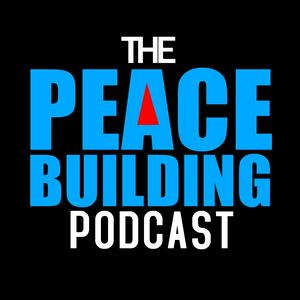
Descarga la app gratuita: radio.net
- Añadir radios y podcasts a favoritos
- Transmisión por Wi-Fi y Bluetooth
- Carplay & Android Auto compatible
- Muchas otras funciones de la app
Descarga la app gratuita: radio.net
- Añadir radios y podcasts a favoritos
- Transmisión por Wi-Fi y Bluetooth
- Carplay & Android Auto compatible
- Muchas otras funciones de la app


The Peacebuilding Podcast : From Conflict To Common Ground
Escanea el código,
Descarga la app,
Escucha.
Descarga la app,
Escucha.

